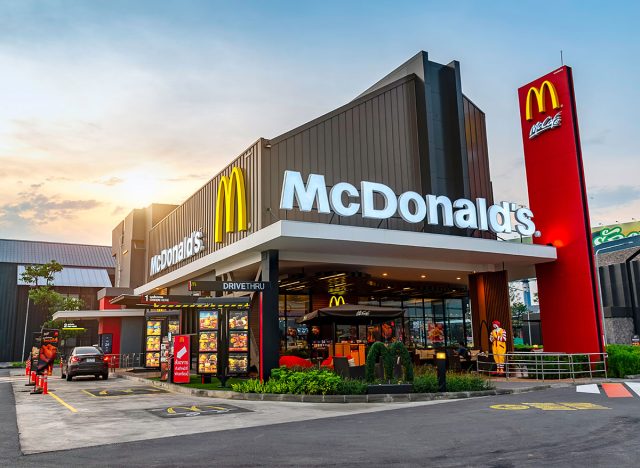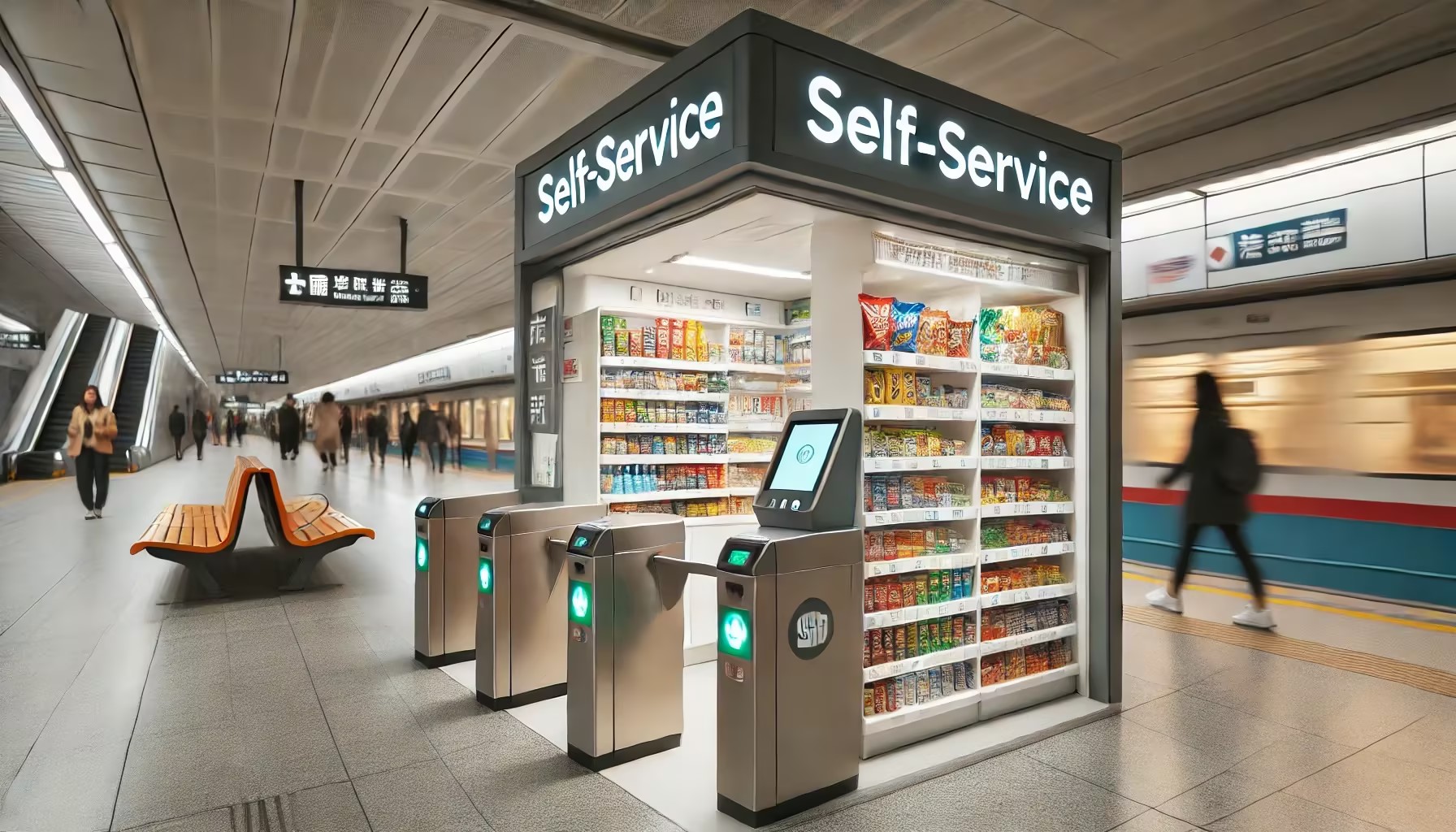The McDonald's Standardization Story and its Comparison to Cloudpick Revolutionizing Retail
2024.12.13

You might wonder how McDonald's and Cloudpick Revolutionizing Retail connect. Both have reshaped their industries through innovative strategies. McDonald's, with its standardization, ensures consistency and efficiency across its global outlets. This approach has led to impressive growth, including plans to reach 250 million active loyalty users and generate $45 billion in sales by 2027. Meanwhile, Cloudpick Revolutionizing Retail is transforming the retail landscape by utilizing AI to create seamless, cashier-less shopping environments. Understanding these strategies helps you appreciate how businesses can thrive by balancing tradition with cutting-edge technology.
McDonald's Standardization Story

The Origins of Standardization
Ray Kroc's Vision
You might find it fascinating how Ray Kroc transformed McDonald's into a global powerhouse. In 1955, he opened the first McDonald's restaurant east of the Mississippi River. This move marked the beginning of a new era for the brand. Kroc envisioned a fast-food chain that offered consistent quality and service. His vision laid the foundation for McDonald's to become a household name worldwide.
The Development of the Franchise Model
Kroc's strategy involved franchising, which began in 1955. By purchasing McDonald's from the McDonald brothers in 1961, he accelerated the brand's expansion. Franchising allowed McDonald's to maintain a standardized product and customer experience across all locations. This model ensured that no matter where you visited a McDonald's, you would receive the same quality and service. The franchise model became a cornerstone of McDonald's success, enabling rapid growth and global reach.
Impact on Global Success
Consistency Across Locations
McDonald's standardization guarantees that you enjoy the same taste and quality, whether you're in New York or Tokyo. This consistency has been crucial to its global success. Customers know what to expect, which builds trust and loyalty. The uniformity in menu items and service procedures ensures that every visit meets your expectations.
Efficiency and Cost Management
Standardization also enhances efficiency and cost management. By streamlining operations, McDonald's reduces waste and maximizes productivity. This approach allows the company to offer affordable prices without compromising quality. You benefit from quick service and value for money, making McDonald's a popular choice for millions worldwide.
Challenges and Adaptations
Balancing Standardization with Local Preferences
Despite its success, McDonald's faces challenges in balancing standardization with local preferences. You might notice that menus vary slightly in different countries. This adaptation caters to local tastes while maintaining the core McDonald's experience. The ability to adapt without losing brand identity is a testament to the company's strategic flexibility.
Innovations within the Standard Model
Innovation plays a vital role in McDonald's strategy. The company continuously seeks ways to improve its standard model. From introducing healthier menu options to incorporating technology in ordering systems, McDonald's adapts to changing consumer demands. These innovations ensure that you enjoy a modern dining experience while still receiving the familiar McDonald's service.
Cloudpick Revolutionizing Retail

Introduction to Cloudpick
Founding and Mission
In 2017, Cloudpick emerged with a mission to transform the retail industry. You might find it intriguing how this company aims to revolutionize shopping experiences through AI-based smart store solutions. By focusing on innovation, Cloudpick seeks to enhance operational efficiency and customer satisfaction. The brand's commitment to creating intelligent, cashier-free environments sets it apart in the retail landscape.
Key Technologies Used
Cloudpick leverages cutting-edge technologies to achieve its mission. The integration of AI, computer vision, and deep learning forms the backbone of its smart stores. You will notice how these technologies work together to create a seamless shopping experience. The use of Intel RealSense Depth Cameras allows for 3D representation of stores, enabling accurate gesture recognition and product tracking. This technological prowess ensures that you enjoy a frictionless shopping journey.
Technological Innovations
AI and Machine Learning in Retail
AI and machine learning play pivotal roles in Cloudpick's operations. These technologies enable the system to recognize products and monitor customer behavior accurately. You benefit from the "Grab & Go, senseless payment" experience, which eliminates the need for traditional checkout processes. This innovation not only enhances convenience but also streamlines store operations.
Automation and Customer Experience
Automation lies at the heart of Cloudpick's strategy. By automating various aspects of the shopping process, Cloudpick improves efficiency and reduces operational costs. You experience a personalized and efficient shopping journey, free from the constraints of conventional retail. The focus on automation ensures that you receive a high-quality experience every time you visit a Cloudpick-enabled store.
Market Impact and Growth
Adoption by Retailers
Retailers worldwide are increasingly adopting Cloudpick's solutions. You might be interested to know that over 200 smart stores across 13 countries have implemented these technologies. This widespread adoption highlights the growing demand for AI-driven retail solutions. Retailers recognize the value of enhancing customer experiences while optimizing their operations.
Future Prospects and Challenges
Looking ahead, Cloudpick faces both opportunities and challenges. The potential for further growth in the retail sector is immense. You can expect Cloudpick to continue expanding its reach and refining its technologies. However, challenges such as market competition and technological advancements require strategic planning. Cloudpick remains committed to overcoming these hurdles and maintaining its position as a leader in the industry.
Comparison of Approaches
Similarities
Focus on Efficiency and Consistency
Both McDonald's and Cloudpick prioritize efficiency and consistency in their operations. McDonald's achieves this through its standardized processes, ensuring that every restaurant delivers the same quality and service. You experience the same taste and service whether you're in New York or Tokyo. Similarly, Cloudpick uses AI and automation to streamline retail operations. This technology-driven approach ensures that you enjoy a seamless shopping experience every time you visit a Cloudpick-enabled store.
Global Reach and Influence
Both companies have a significant global presence. McDonald's operates thousands of restaurants worldwide, making it a household name. Its influence extends across continents, shaping the fast-food industry. Cloudpick, though newer, has rapidly expanded its reach. With over 200 smart stores in 13 countries, Cloudpick is revolutionizing retail on a global scale. You can see how both brands impact their respective industries worldwide.
Differences
Traditional vs. Technological Innovation
McDonald's relies on traditional methods, such as franchising and standardization, to maintain its brand identity. These strategies have proven successful over decades. However, McDonald's also embraces technology to enhance customer experience. They use AI for personalized ordering and automated voice systems. In contrast, Cloudpick focuses entirely on technological innovation. Their AI-powered solutions create cashier-less environments, offering you a futuristic shopping experience.
Customer Interaction and Experience
Customer interaction differs significantly between the two. At McDonald's, you interact with staff for ordering and service. They use AI to improve efficiency, like geofencing to reduce wait times. However, human interaction remains central. Cloudpick offers a different experience. You shop independently, with AI handling transactions. This approach minimizes human contact, providing a unique, autonomous shopping journey. Both methods aim to enhance your experience, but they do so in distinct ways.
Lessons Learned
Importance of Adaptability
Adapting to Market Changes
You must recognize the importance of adaptability in today's fast-paced business environment. Businesses that quickly adapt to market changes often outperform their competitors. By staying flexible, you can navigate shifts in consumer preferences and technological advancements. This adaptability allows you to seize new opportunities and maintain a competitive edge. For example, McDonald's adapts its menu to cater to local tastes, ensuring relevance in diverse markets. Similarly, Cloudpick continuously refines its AI technologies to meet evolving retail demands. Embracing change enhances your ability to thrive in dynamic markets.
Balancing Innovation with Tradition
Balancing innovation with tradition is crucial for sustained success. You should strive to innovate while preserving core values and brand identity. McDonald's exemplifies this balance by integrating technology into its operations without losing its traditional appeal. The introduction of digital kiosks and mobile ordering enhances customer experience while maintaining the familiar McDonald's service. Cloudpick, on the other hand, focuses on technological innovation, creating cashier-less environments that redefine retail. By balancing innovation with tradition, you can ensure long-term growth and customer loyalty.
Strategic Implementation
Effective Use of Technology
Effective use of technology can transform your business operations. You should leverage technology to enhance efficiency and improve customer experiences. McDonald's uses AI for personalized ordering and automated voice systems, streamlining service delivery. Cloudpick's AI-driven solutions create seamless shopping experiences, eliminating the need for traditional checkouts. By strategically implementing technology, you can optimize processes and deliver value to your customers. This approach not only boosts productivity but also strengthens your market position.
Maintaining Brand Identity
Maintaining brand identity is essential as you implement new strategies. You must ensure that innovations align with your brand's core values and mission. McDonald's maintains its identity by offering consistent quality and service across all locations. Despite technological advancements, the brand remains synonymous with fast, reliable food. Cloudpick, with its focus on AI and automation, stays true to its mission of revolutionizing retail. By preserving brand identity, you build trust and loyalty among your customers. This consistency reinforces your brand's reputation and fosters long-term success.
Applications in Other Industries
Potential for Standardization
Industries Benefiting from Consistency
You might find it interesting how various industries benefit from standardization. The healthcare sector, for instance, relies on standardized procedures to ensure patient safety and treatment efficacy. Consistency in medical protocols reduces errors and enhances patient outcomes. Similarly, the automotive industry uses standardization to streamline manufacturing processes. This approach ensures that vehicles meet quality standards and regulatory requirements.
In the financial sector, standardization plays a crucial role in maintaining compliance and reducing operational risks. By implementing consistent procedures, financial institutions can enhance transparency and build trust with clients. You can see how these industries leverage standardization to improve efficiency and reliability.
Challenges in Implementation
Implementing standardization poses challenges across different sectors. You might encounter resistance to change, as employees and stakeholders may prefer existing practices. Overcoming this resistance requires effective communication and training programs. Additionally, balancing standardization with customization can be difficult. Businesses must ensure that standardized processes do not stifle innovation or hinder adaptability.
Another challenge lies in maintaining consistency across diverse markets. You must consider local regulations and cultural differences when implementing standardized procedures. By addressing these challenges, you can successfully integrate standardization into your operations.
Technological Innovations
Opportunities for AI and Automation
AI and automation present significant opportunities for various industries. In the retail sector, AI personalizes customer experiences and optimizes inventory management. You benefit from tailored recommendations and efficient service delivery. Financial institutions use AI for fraud detection, risk assessment, and automated trading. These applications enhance security and streamline operations.
Marketing also benefits from AI adoption. Businesses use AI to analyze data, personalize content, and automate tasks. This approach improves engagement and efficiency by predicting trends and understanding customer behavior. You can see how AI and automation transform industries by enhancing productivity and customer satisfaction.
Case Studies of Successful Adoption
Several industries have successfully adopted AI and automation. In the healthcare sector, AI-powered diagnostic tools improve accuracy and speed in identifying diseases. You might find it fascinating how these tools assist doctors in making informed decisions. The automotive industry uses AI for autonomous driving and predictive maintenance. These innovations enhance safety and reduce downtime.
Retailers like Amazon leverage AI for inventory management and personalized shopping experiences. You enjoy a seamless shopping journey with recommendations tailored to your preferences. These case studies demonstrate the transformative impact of AI and automation across various sectors. By embracing these technologies, you can drive innovation and achieve sustainable growth.
Cloudpick wants to share with you, unreservedly, the successful experience of operating hundreds of AI unmanned stores worldwide
Cloudpick wants to share with you, unreservedly, the successful experience of operating hundreds of AI unmanned stores worldwide


